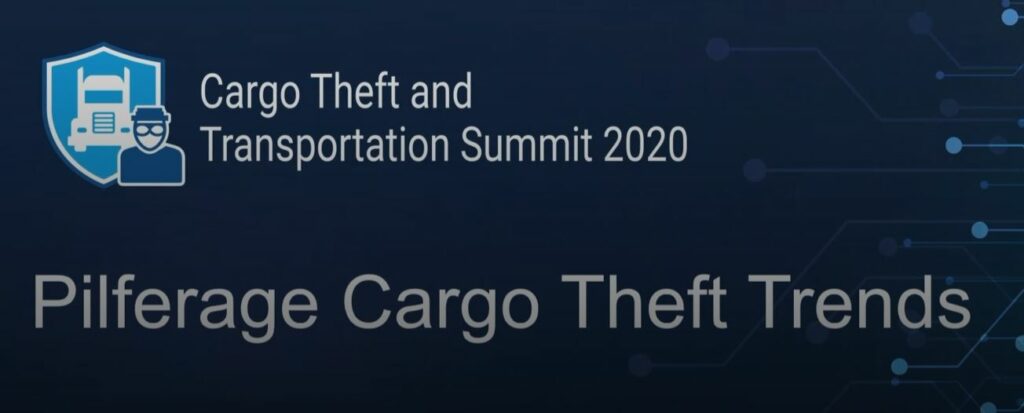Pilferages up, but industry takes note
TORONTO, Ont. – There has been a significant spike in pilferages this year, but the trucking industry is doing a better job in reporting events, analysts told the Cargo Theft and Transportation Summit on Tuesday.
In the U.S. alone, the number of reported cases has gone up from 186 in 2014 to 418 in 2019, said Ralph Pepe, senior crime intelligence analyst at CargoNet. He said 399 cases have been reported so far this year. The company estimates that number will rise to 569 by the end of 2020, and 613 next year.

In the industry, pilferage refers to the burglary of a loaded conveyance and theft of some, but not all products.
“And, we have always known that pilfered stuff is basically the iceberg below the water. There is much more pilfered stuff that goes on than there is full load cargo theft, and that’s really been going on for as far back as I can remember,” said Scott Cornell, national practice lead for transportation at Travelers.
Cornell said there are two types of cargo theft: Straight theft and strategic theft.
He said straight theft happens when thieves go out and steal the cargo. Strategic theft happens when thieves use unconventional methods such as identity theft to steal stuff.

Growing problem
Pepe said pilferage is a growing problem.
“Part of the reason for that is that professional cargo thieves have discovered that burglarizing a parked trailer is generally less risky than stealing a whole trailer,” Pepe said.
“There’s a lot less risk there, and cargo theft is increasingly seen as a low risk and profitable venture.”
Pepe said pilferages are most commonly occurring in the major metro areas such as Los Angeles, Dallas, Memphis, Atlanta and Chicago. The reason for that is there are many groups that could be striking the same area.
“Cargo thieves are going to steal what they know they can sell. So, whatever is in demand at the time is what they are going to target the most.”
– Scott Cornell, national practice lead for transportation at Travelers.
He said the Covid-19 pandemic has had an effect on the type of items being stolen, with thieves now targeting toilet paper, paper towels and laundry and cleaning supplies.
Pepe noted that thefts of electronics and apparel are down. He said when consumers tighten their wallets cargo thieves respond by stealing more essential goods.
“Cargo thieves are going to steal what they know they can sell. So, whatever is in demand at the time is what they are going to target the most,” added Cornell.
Pepe said there are two types of pilferages:
One would be a broken-seal type event in which there is evidence that a trailer was broken into. That could be the doors were found open, there was a seal cut, there was a padlock cut, but it doesn’t appear that any product was taken.
The other is an event in which the trailer was burglarized or the container was burglarized, and there is evidence that cargo was stolen.
Cornell, however, stressed that seals are broken in both events.

They’re ‘proficient’
Pepe said most thefts occur when goods are transported from distribution centers to stores.
“And these are shipments that we believe are being followed from the origin. And they are being pilfered when the truck comes to a brief pause.”
He said cargo thieves are so proficient they can take an entire pallet of products in a matter of minutes. Many of them have as much insight into trucking as truck drivers do, he said.
Both Pepe and Cornell said thieves always target trailers that are not fully secured as they don’t want to put in a lot of work.
They said one of the best ways of protecting cargo is hardening the target, which makes it much more difficult for thieves to break.
“You will never defeat cargo theft 100%, but you can make yourself up more hardened target, and that will help keep you safe,” said Pepe.
- This story has been updated to correct a quote from the Travelers executive.
Have your say
This is a moderated forum. Comments will no longer be published unless they are accompanied by a first and last name and a verifiable email address. (Today's Trucking will not publish or share the email address.) Profane language and content deemed to be libelous, racist, or threatening in nature will not be published under any circumstances.